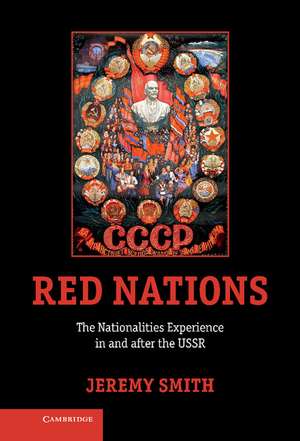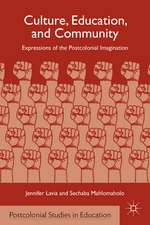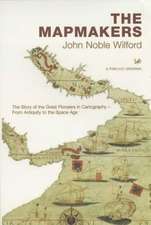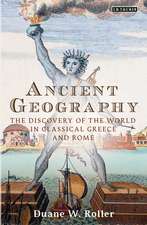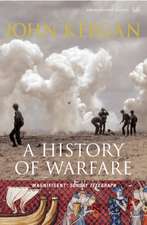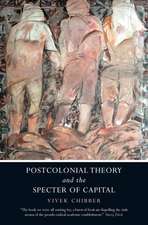Red Nations: The Nationalities Experience in and after the USSR
Autor Jeremy Smithen Limba Engleză Hardback – 11 sep 2013
| Toate formatele și edițiile | Preț | Express |
|---|---|---|
| Paperback (1) | 275.85 lei 6-8 săpt. | |
| Cambridge University Press – 11 sep 2013 | 275.85 lei 6-8 săpt. | |
| Hardback (1) | 483.37 lei 6-8 săpt. | |
| Cambridge University Press – 11 sep 2013 | 483.37 lei 6-8 săpt. |
Preț: 483.37 lei
Preț vechi: 543.11 lei
-11% Nou
Puncte Express: 725
Preț estimativ în valută:
92.52€ • 100.53$ • 77.77£
92.52€ • 100.53$ • 77.77£
Carte tipărită la comandă
Livrare economică 21 aprilie-05 mai
Preluare comenzi: 021 569.72.76
Specificații
ISBN-13: 9780521111317
ISBN-10: 0521111315
Pagini: 412
Ilustrații: 6 tables
Dimensiuni: 152 x 229 x 24 mm
Greutate: 0.7 kg
Ediția:New.
Editura: Cambridge University Press
Colecția Cambridge University Press
Locul publicării:Cambridge, United Kingdom
ISBN-10: 0521111315
Pagini: 412
Ilustrații: 6 tables
Dimensiuni: 152 x 229 x 24 mm
Greutate: 0.7 kg
Ediția:New.
Editura: Cambridge University Press
Colecția Cambridge University Press
Locul publicării:Cambridge, United Kingdom
Cuprins
1. Introduction: the prison-house of nations; 2. Dispersal and reunion: revolution and Civil War in the Borderlands; 3. Bolshevik nationality policies and the formation of the USSR; 4. Nation-building the Soviet way; 5. Surviving the Stalinist onslaught, 1928–41; 6. The Great Patriotic War and after; 7. Deportations; 8. Territorial expansion and the Baltic exception; 9. Destalinisation and the revival of the Republics; 10. Stability and national development: the Brezhnev years, 1964–82; 11. From reform to dissolution, 1982–91; 12. Nation-making in the post-Soviet states; 13. The orphans of the Soviet Union: Chechnya, Nagorno, Karabakh, Abkhazia, South Ossetia and Transdniester; Conclusion.
Recenzii
'Jeremy Smith has given us the first comprehensive account of the turns and twists of Soviet nationality policies from the revolution to the present. An acknowledged expert on the USSR's practices among non-Russian peoples, Smith shows how nations were constructed and reconstructed by an ostensibly internationalist socialist state that both promoted ethnic cultures but also exiled whole peoples to eradicate perceived threats to the regime. The importance of his story should not be underestimated. The heritage of Soviet aspirations, achievements, and brutal impositions continues after the collapse of communism and remains the ground on which fifteen new states build their future.' Ronald Grigor Suny, Charles Tilly Collegiate Professor of Social and Political History, University of Michigan
'Jeremy Smith directs his detailed research and attention in this book to the history of these non-Russian peoples within the Soviet Union from 1920 up to its dismantling in 1991.' Morning Star
'In sum, the overall conception of this volume breaks new ground, which deserves continued attention from scholars, and more accessible treatment. The volume raises our awareness of how the legal perspective may be helpful and even essential for understanding virtually any aspect of the Cold War.' Sergei Antonov, The Russian Review
'Jeremy Smith directs his detailed research and attention in this book to the history of these non-Russian peoples within the Soviet Union from 1920 up to its dismantling in 1991.' Morning Star
'In sum, the overall conception of this volume breaks new ground, which deserves continued attention from scholars, and more accessible treatment. The volume raises our awareness of how the legal perspective may be helpful and even essential for understanding virtually any aspect of the Cold War.' Sergei Antonov, The Russian Review
Notă biografică
Descriere
This book surveys the experiences of non-Russian USSR citizens both during and following the collapse of the Soviet Union.
